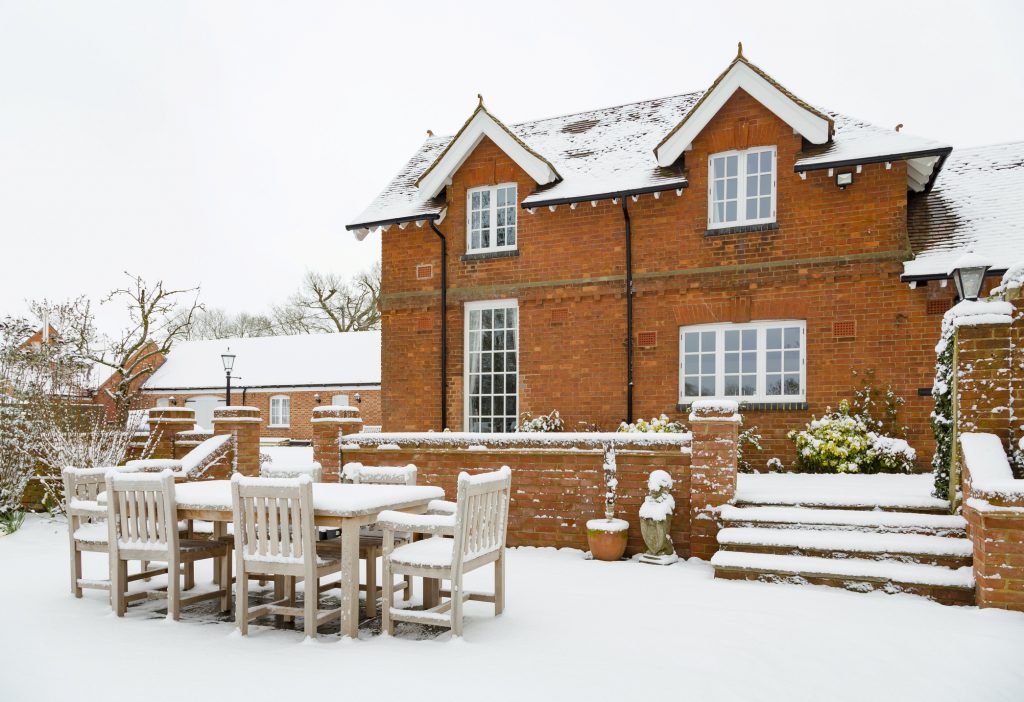11 February 2021
Prepare your home for the winter freeze
We all learned at school that water expands when it freezes. This is not a problem with the cubes in your ice tray. However, if ice forms in your home plumbing it’s a different story. It could spell disaster. The pressure of expanding ice is enough to crack a pipe. So, when the ice thaws, there’s the potential for gallon upon gallon of water under pressure to cascade into your home.
Here are five top tips to prevent a catastrophe:
1. Know the location of your main stopcock
It’s usually underneath the kitchen sink, although it might be under the stairs or in the basement, if you have one. You need to know where it is so that you can close it quickly in an emergency. Check, occasionally, to make sure you can turn it on and off – ‘Right for tight. Left for loose’. Lubricating it with thin oil is the best way to ensure it won’t stick.
2. Leave your heating on during cold snaps
When you’re out of the house, or at night, leave your heating on a low setting (around 10oC). This will help keep the house warm and prevent pipes from freezing. If you’re going away for a longish period, certainly turn off your stopcock but also consider draining the cold-water system, so there’s no water to freeze. Most insurers will put a condition in place to see that this is done, failure to comply could result in a potential claim being refused.
3. Check your taps and insulation
Repair any dripping taps – not forgetting outside taps. Look for tell-tale signs like moisture or discolouration around pipe joints. Check that pipes and tanks in the attic, or anywhere else liable to freeze, are properly lagged. Lag the hot water pipes as well. This will keep the water warmer for longer. Make certain that your loft insulation is thick enough (250mm – 270mm) and in good condition. Again, this not only helps keep your home warmer, it should also reduce your energy bill. Always make sure loft insulation is laid on top of pipes rather than underneath, so that rising heat can reach them.
4. Ensure your boiler has been serviced
The last thing you want is for your boiler to break down during a cold snap. If your radiators aren’t heating to the top, it’s likely they have air in them. Fix this with a radiator key, available from DIY shops, and open the little valve at the top. Listen for the air hissing. The moment it stops and you see a drip of water, close it up again.
5. Clear drains and gutters
Keep your drains and gutters clear of leaves. This will help to prevent blockages and can also stop leaks that might damage to your walls.
And, after all this, if a pipe still bursts…
- Turn off the main stopcock and turn on all the taps to drain the system
- Switch off the central heating
- Switch off the mains electricity, providing the switch is not wet
- Call a plumber
- Remove or protect items that might be damaged by water.
Ricky Downs, Private Clients Manager comments:
“Escape of water claims are more common during the winter months and most destructive when a home is empty. By following these five preventative steps you can dramatically reduce the risk of it happening to you.”
For more information, get in touch with:
Ricky Downs
rjd@centor.co.uk
020 7330 8725
Click here for more information.


